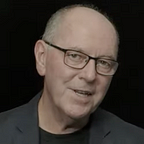The standardized tests of institutions reinforce the elitist prestige of the wealthy
Like most people, you have probably experienced the disappointment of a poor test result and the shame of having your result paraded to the entire cohort.
The test results summary is made public and usually sorted high-to-low. The folks up top often gloat while those at the bottom look for a rock to crawl under.
A poor test result is often terribly demoralizing. It takes a high degree of resilience and maturity to cope with a deep sense of failure, even if you actually managed a Pass. And the younger the person coping with a poor result, the more likely they’ll internalize the stress and embarrassment.
Most countries continue to use standardized tests as a mechanism for admission and sorting and generally determining “suitability”.
This doesn’t guarantee better leaders necessarily, but it does mean that members of the professional class have all participated in the same mechanism of selection, and one which is relatively insulated from the impact of pedigree and connection, which otherwise looms large in most western societies.
It makes general sense that professionals sit the same entrance exam. Doctors, lawyers, vets, dentists, and other professionals should be asked to demonstrate a level of knowledge and capability that implies they’re ready to service clients.
The fact of the importance of connections means that institutions understand the value and power of the “big test” which is blind to all the other “holistic” factors, which often smuggle privilege in through the back door. We saw it in America in 2020 when wealthy parents were caught out “buying” a place in prestigious colleges for their children.
Clearly, generalized testing is imperfect. But what is the alternative?
Over the past few years, graduate schools have been compromising or easing requirements for admission. What will the consequence be? If history is any guide, those with connections, influence, and pedigree will benefit. How will colleges weigh academic performance against a sizable donation?
The more general objection is that standardized testing favors the privileged due to the cost of the tests, as well as the reality that those from higher socioeconomic backgrounds tend to be more well prepared to take these tests. When wealthy parents decide they’ll do whatever it takes to ensure their child’s future, it’s fair to say the outcomes are predictable.
When the age of aristocracy ended in Europe, and a new egalitarian ethos required ways to identify those with talent but no connections or pedigree, intelligence testing appeared in modern Europe as a way in which to identify talented individuals born outside of the elite.
How to recognize a brilliant mind: It is quite plausible that one can obtain a university degree through conscientiousness despite modest cognitive aptitudes. There are many such individuals. But who is going to win a prestigious medal in mathematics, that recognizes the most brilliant young minds? A high IQ is not sufficient in this case. Not at all. But it is probably necessary.
Will the West turn away from intelligence and aptitude testing to unleash untapped capital? Or will our society’s reformist impulses only usher in a new era of cronyism and favoritism?
During a recent project working with 15 and 16-year-old students, I specifically did not incorporate any formal testing in the traditional sense. A more skills or competency-based test was included in the form of a team presentation in front of their peers and an audience of teaching staff, school executives, and school district executives.
During the 8-week program, each team in the cohort was engaged with a local business owner to work on devising solutions to a real-world problem the business was eager to solve.
It simply wasn’t appropriate to incorporate formal testing and my specific goal was that the students would feel pride in their final presentation and walk off the stage with a genuine sense of accomplishment. There were no winners, nor losers by design.
In effect, everyone was a winner and the vibe at the event was simply wonderful. We did have a professional videographer record the presentations to enable a post-event debrief and discussion to take place with the entire cohort.
What we didn’t have though, was a uniform and standardized way to determine what each student learned.
Would it have been somehow better to incorporate formal testing in the program? I very much doubt it, and in fact, I’m convinced that the students all participated in a kind of behavioral test and they all passed. Importantly, they all felt successful and their confidence was enhanced, which was precisely my objective.
You can read more about the program and watch the students in this Blog Post.
About the Author:
Greg Twemlow is a Sydney-based Social Enterprise Founder | Startup Mentor | CEO | Writer | Speaker | Host of https://medium.com/consilio
WRITTEN BY
